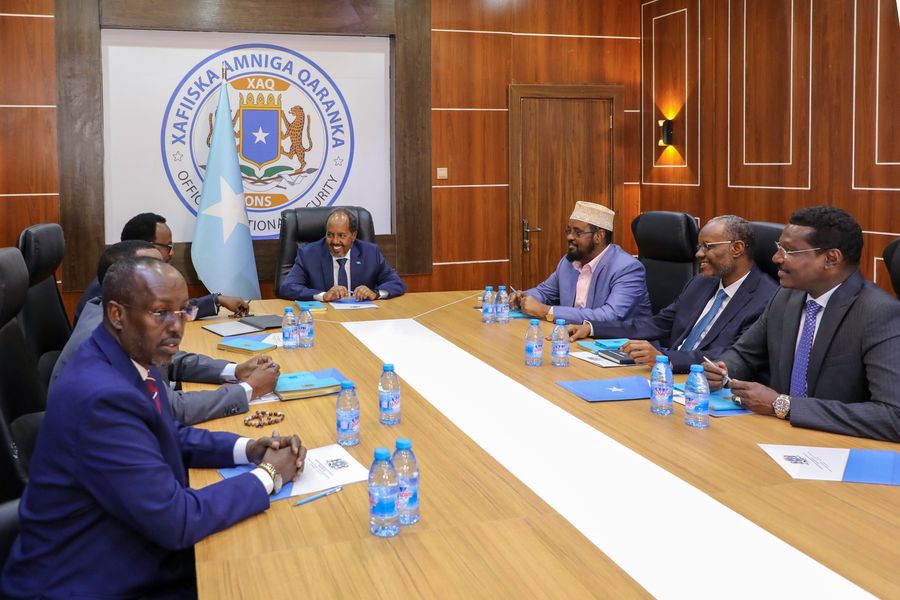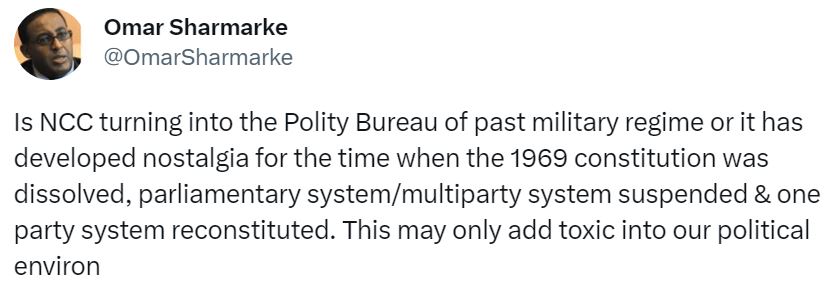Somali leaders scrap PM post, adopt direct presidential elections in far-reaching controversial deal

GOOBJOOG NEWS|MOGADISHU: Somalis will elect a president and Vice President directly from the next election circle in 2026 in a major departure from the current system where legislators elect the President, top federal and state leaders have resolved in a move that will have far-reaching changes on the governance of the country and elicit mixed reactions.
The National Consultative Council chaired by President Hassan Sheikh Mohamud and brings together the Federal Member State leaders and Prime Minister said in a communique Saturday evening that the President will be elected on a joint ticket with the Vice President as it happens in neighbouring Kenya. This decision effectively scraps the position of the Prime Minister in what proponents see as a solution to the power tussles between the PM and President.
Somalia adopted a Parliamentary system of government after independence in 1960 but that ended with the military take-over of government from 1969 to 1991. The first permanent government in 2000 returned to the system and this has been the case since then.
To effect this change, article 89 of the Provisional Constitution will have to be amended. The article provides that a president is elected by a joint session of both the Upper and Lower House of parliament.
The NCC has also adopted a controversial proposal which envisages the existence of only two political parties in the country. This mirrors a similar capping on the number of political parties in Somaliland whose constitution limits the political parties to three. Ahead of the 2021/22 parliamentary elections, over 50 political parties were registered on interim basis by the National Independent Electoral Commission (NIEC). The NIEC has since been dissolved.
The electoral model will be based on Close List Proportional Representation, the NCC resolved. The NIEC proposed a similar model in 2019. Under this option, political parties pre-determine who will secure seats in parliament in a descending order. This means voters will only vote for the parties and not the individual candidates.
Former two-time Prime Minister Abdirashid Sharmarke has sharply criticized the proposed changes likening the NCC to the Military Revolution Council.

The absence of Puntland, a key stakeholder is also likely to generate more criticism.